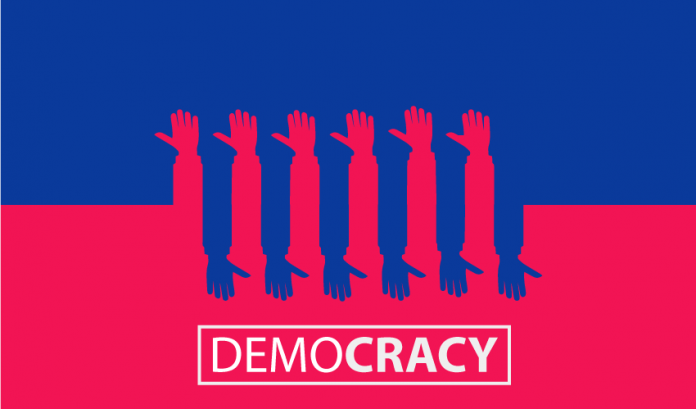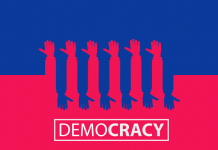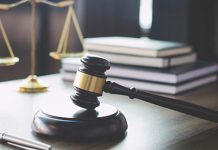This article is written by L M Lakshmi Priya, a student from Sathyabama Institute of Science and Technology, Chennai. This article provides an exhaustive overview of communism vs democracy. It also covers the political system in both communism and democracy with a broader view.
It has been published by Rachit Garg.
Table of Contents
Introduction
The economic and political ideology of communism is in direct opposition to the idea of democracy. It seeks to eventually replace the privately owned, profit-based economy with collective public ownership. Democracy, in its broadest sense, refers to the process through which the government implements the people’s will. The system in which the people are given power and their elected representatives carry it out. The fundamental distinction is that in democracies, voters choose the members of their government from among the numerous other parties, whereas in communist systems, only one party controls.
Let’s look at communism and democracy in detail below, along with how they differ.
What is communism
While talking about communism, a question might occur as to: does communism seek to abolish social class divisions over labour benefits while maintaining state control over property to establish a society without classes? Communism is viewed as the modern or evolved form of socialism, mainly because it opposes the ideas of democracy and capitalism. Communism divides the wealth equally or follows each person’s needs. Karl Marx and Friedrich Engels created the concept of communism in 1848, the social theory that emerged from the violent uprising that a highly capitalist/developed nation had started. According to communists, ‘communism’ simply refers to the end of capitalism and the establishment of a classless society. It is believed that with communism we are able to provide for everyone’s basic needs, including freedom, equality of social and economic standing, and equal access to opportunities and rights without discrimination.
Meaning of communism
- The definition of communism in the Oxford English Dictionary is “a philosophy or system of social organisation in which all property is owned by the community and each person contributes and receives according to their capacity and needs.”
- The French word commun is the source of communism (common). Communism envisions a society in which all property is held in common, labour is shared equally among all members of society, and the rewards of that labour are distributed equally as well. Similar term: “From each according to his ability, to each according to his need,” as expressed by German philosopher Karl Marx. When it comes to governing, communism is frequently more akin to a version of socialism in which the government controls and runs business on behalf of the populace.
Political system in communism
When it comes to the political system, the question of who governs the state or who creates the rules emerges? The communist party is the most significant organ for conducting all the duties of the political system when it comes to communism. Since it is part of the fundamental design to be aware of social interests, it assumes power and effectively modifies society. The top post in the party isheld by the secretary or general secretary. Democratic centralism serves as the foundation for the communist party’s organization. The phrase “democratic centralism,” which was first used by the Mensheviks, refers to a democratic institution that can take effective action.
Communism’s historical roots
The one party that controls the government and the leader’s decisions constitutes the actual communist state. The two phases of communism based on Karl Marx’s ideas are socialism and capitalism, at the end of the day, the country should operate under this two-step idea to ensure communism where equality for all should be the vital goal, and that should be accepted by everyone, and then there should be no class division. In terms of a unified political philosophy, the concepts of private property and an economy that is oriented on profits, are likely to be replaced by public ownership and shared profits.
Communism – French and Industrial Revolution
In Russia, the Bolshevik Party won power during the October Revolution of 1917. They held the title “Communist Party” and developed a single-party system devoted to executing the Leninism style of communism. All property was nationalised, and the state took over all factories and railways. Communism extended over central and eastern Europe during World War II, and the Communist Party of China founded the People’s Republic of China in 1949. Approximately one-third of the world’s population was living in Communist countries at the beginning of the 1980s. The French Revolution began in 1789 and marked the beginning of a new era in politics. First, during the French Revolution, revolutionaries overcame feudal privileges to establish liberty, equality, and fraternity. As a result, communism emerged as the dominant ideology. The socialist movement in Europe during the nineteenth century gave rise to communism. Socialists blamed capitalism and democracy for the sufferings of the proletariat (a class of factory workers who worked in hazardous conditions) when the Industrial Revolution came around.
The constitution of communism
The legislative and executive branches make up the political system’s general structure. When it comes to communism, there should be unanimity, accord, and order so that the citizens of communism may obtain an understanding of politics. However, the differences between the questions are not even exposed in public when it comes to communism. The Constitution normally grants the state the authority to act as it seems fit, but in communist countries, although states are created with broad powers, the states should only operate under party authority.
What is democracy
Demos and Kratos, two Greek words that collectively mean ‘people’ and ‘power,’ are combined to form the word ‘Democracy.’ it also means “the government where the powers are vested within the people, who may elect the members by the form of election to govern them as the will of the people has elected them.” Abraham Lincoln is notable for using the phrase “Democracy is a government of the people, by the people and for the people.” Subconsciously, democracy is entirely opposed to monarchy since it is a kind of exercise of the people’s will. By assuring peaceful coexistence and the adoption of freedom, democracy brought an end to the monarchy and authoritarian rule. However, in a democracy, citizens have the right to enquire about the accountability of the administration.
Origin of democracy
Political structures like republics and Parliaments that are related to democracies really aren’t new. Although there are claims that democracy dates back far further in a more basic form, the Athenians are generally credited with creating the concept of democracy in the sixth century B.C. When deciding whether to follow one set of tracks over another, for instance, prehistoric tribes may have undertaken a majority vote.
Definitions of Democracy
Definitions of Democracy by the various philosophers are given below
- According to Aristotle “Democracy means government of the poor or those less fortunate”.
- According to Sinclair Lewis “In general, apart from outrageous exceptions, democracy has given the ordinary worker more dignity than he has ever had”.
- According to Mahatma Gandhi “Democracy, based on the idea that I do, should provide the same opportunities weaker than stronger. Only nonviolence can achieve this goal ”.
Political system in a democracy
Around the world, there are numerous states and forms of government, referring to the political structures in which power is vested. The government, under which people generally live, has a responsibility to protect things like people’s rights, freedoms, and welfare. Democracy, or the political system in which the people themselves govern, is the most popular political idea in the world. Democracies consistently advocate for free and fair elections as well as the maintenance of law and order.
Forms of democracy
In a democracy, the people choose the leaders, and those leaders are then accountable to the people. There are two different sorts of democracies: direct democracy and representative democracy.
- Direct democracy – The people debate their opinions face-to-face in this form of democracy, and they then vote to make decisions. However, this may only work in small groups; it may be unworkable for direct democracy nationally.
- Representative democracy – In a representative democracy, the people choose their representatives through elections to speak for them. They may assume several duties to carry out and guarantee excellent administration; India serves as an instance.
Rights and responsibilities of citizens in a democratic society
The citizens owe the state their respect in exchange for the state protecting their rights. In a democracy, everyone has the same freedom to freely create teams of their choice that aren’t affiliated with the government and take part in society’s public life. At the same time, citizens must be willing to take on the obligations that come with such participation, including learning about the issues, exhibiting tolerance toward others who have different opinions, and making concessions when required to reach an understanding in a democratic society, citizens have access to fundamental human rights like freedom of speech and expression, religion, the ability to gather and associate with others, and the right to a fair trial.
The best form of government is democracy
Churchill said, “Democracy is the worst form of government, except for all those other forms that have been tried from time to time.” However, democracy remains the ideal type of government from the standpoint of giving people freedom, representing their interests, and having an open government.
People’s freedom –
In a democratic republic, the people have the right to elect their government, as well as the manner in which the government’s policies and functions should be carried out. Importantly, they also have the freedom to voice an opinion of their choice.
Representing –
A core element of democracy is that, since the people select the government to serve as their representative, it has a responsibility to look out for their interests. If it doesn’t, the people have the right to overthrow it.
Open government / Transparency –
The executive branch should be held accountable and should function under a system of checks and balances in a democracy to guarantee that the public is informed about their government. The independent wing has the right to look into any of their private work if this particular feature has been violated.
Communism vs democracy
The viewpoints on which the democratic and communist applications are designed are diverse. Though on the basis that appears to stick to the ‘power to the people principle’ the two forms of government fundamentally alter the way that society’s political and economic foundation is formed.
| On Basis Of | Communism | Democracy |
| Definition | A system where people work and get goods from the government to meet their needs is considered to be communist. All property is considered to be public under this system. | The far more prominent idea of democracy as a “government of the people, by the people, for the people” comes from U.S. President Abraham Lincoln’s 1863 Gettysburg Address |
| Power | In a communist society, the people hold the authority and determine the direction. | Democracy gives the people the power to make decisions by electing their representatives through voting. |
| Discrimination | Under communism, all citizens of the state are recognized as equal. | Even though every person or citizen is treated equally under a democracy, the majority sometimes manages to outweigh the minority in some way. |
| Origin | Communism dates back to the 16th century, as recorded in the book Utopia. After the French Revolution, it emerged as a political theory. | The first democracy was established in 508–7 BC and originated in Athens in classical Greece. Women slaves and individuals under the age of 18 were not included when Athens established its government among those who were eligible to vote. |
| Elections | The election will be held under the premise of liberal democracy, but the governing party is autocratic and its composition never changes. | Democracy accords everyone the ability to cast a vote, regardless of their social status. Each voter has a single vote that they can use. |
| Rights to people | Communism denies citizens civil rights. | Citizens are entitled to civil rights under a democratic government. |
| Elements | The fundamental components are shared ownership, concentrated power, and authoritarianism. | The fundamental components of democracy are suffrage, majority rule, and free elections. |
| Religion | Religion is no longer free to practice in communism. | Religious freedom is acknowledged under democracy. |
| Social structure | The social structure of communism is based upon the idea of classlessness and statelessness. | Due to capitalism, the social structure of democracies is based on the idea of classes: the rich, the middle class, and the poor. However, capitalism permits people to switch between classes. |
| Opinion of war | Communists contend that even though war drives production, it should be avoided since it is terrible for the country. | Based on what the majority of people think. |
Conclusion
To sum up, both communism and democracy are acceptable systems with certain distinctions, but communism works best in small groups since there is less competition, which limits the process of innovation. People don’t like it when one party holds power for an extended period of time.
When it comes to democracy, it gives people the opportunities and rights that provide them with the factors they demand, even when there is no way to fully meet their needs. Democracy still gives people the essentials, and it is the best type of government for the needs of its citizens. The world’s leaders should switch to a more effective system of government where the people are valued.
Frequently Asked Questions (FAQs)
What are the major problems with democracy?
When government employees demand bribes just to carry out their duties and when they do so negligently, the public becomes dissatisfied and begins to distrust the government. Corruption also undermines democracy by setting a poor example for the public.
Why does communism fail?
Since communism has a limited worldview, it forbids individuals from having freedom as a sovereign, it cannot create money. The historical facts make it clear that this style of government is problematic.
What are the examples of communist and democratic states?
The phrase ‘communist state’ refers to a nation governed by a communist movement that upholds Leninist or Marxist principles. In the twenty-first century, countries like Afghanistan and the Congo also did so until they gained republics. Only five nations still adhere to communism today China, North Korea, Laos, Cuba, and Vietnam.
Democratic states are those where the rule of law is upheld by an elected, representative government that allows all social groups to participate in choice. The top three democratic countries are Sweden, Norway, and Iceland.
References
- communism | Definition, History, Varieties, & Facts | Britannica
- Communism | National Geographic Society
- What is communism?
- Communism – an overview | ScienceDirect Topics
- https://www.worldatlas.com/what-is-communism.html
- Democracy
- WHAT IS DEMOCRACY ?
- https://www.eolss.net/sample-chapters/c04/E6-32-01-04.pdf
- Communist Countries 2022
- 10 Common Types of Government & Real-World Examples
- 14.2 Types of Political Systems – Sociology
- Types of Political Systems in India: Democracy, Political Parties
- Democracy And The Law
- Democracy Is the Best Form of Government – DebateWise
- Best 14 Definitions of Communism
- https://www.diffen.com/difference/Communism_vs_
- Communism vs Democracy – Difference and Comparison | Diffen/
- https://www.wondriumdaily.com/marx-engels-and-the-rise-of-communism
Students of Lawsikho courses regularly produce writing assignments and work on practical exercises as a part of their coursework and develop themselves in real-life practical skills.
LawSikho has created a telegram group for exchanging legal knowledge, referrals, and various opportunities. You can click on this link and join:
Follow us on Instagram and subscribe to our YouTube channel for more amazing legal content.
 Serato DJ Crack 2025Serato DJ PRO Crack
Serato DJ Crack 2025Serato DJ PRO Crack











 Allow notifications
Allow notifications


